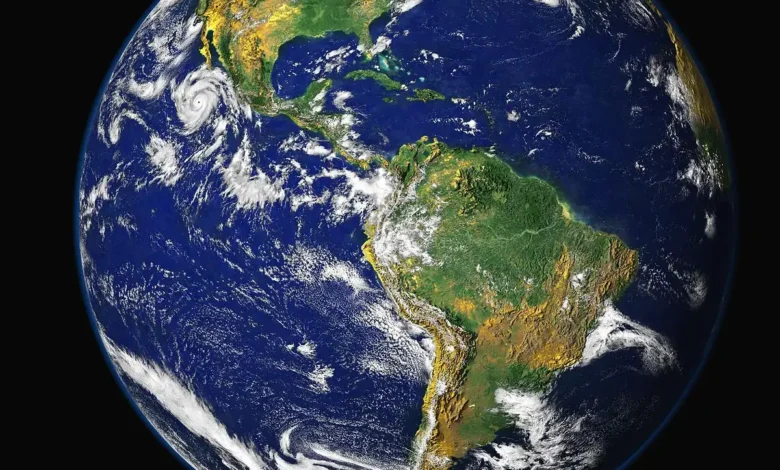Earth is dying scientists warn against the degradation of the planet’s biomarker

In a study published in BioScience, an international coalition of climate scientists said that Earth’s biomarkers had deteriorated so much that life on the planet was “at risk.”
“Biomarkers of the Earth” is a term used to describe key environmental indicators that provide important information about the state and health of our planet.
These biomarkers have been monitored and studied by scientists and organizations around the world to assess the Earth’s overall state and track changes and trends in environmental sustainability and climate change.
The signs observed in the new study included 35 vital signs, including temperature; CO2 levels; sea level; ice mass; acidification of the oceans; air quality; glaciers; as well as population and resource consumption.
The failure to adopt actions to address the root problem, namely that “humans take more from the Earth than they can compensate for”, will lead to “the potential collapse of natural, social and economic systems, and a world suffering from intolerable heat and lack of food and fresh water.”
The report entitled “State of the Climate 2023: Entering Uncharted Territory” indicates that 20 of the 35 vital markers on the planet used by authors to track climate change have reached record levels.
The authors shared new data showing that many climate indices were broken by a “massive margin” in 2023, especially those related to ocean temperatures and sea ice.
The report comes 4 years after the world’s scientists warned of a climate emergency, published by the same periodical, and signed by more than 15 thousand scientists in 161 countries.
Climate disasters
Statistical trends show disturbing patterns of climate-related variables and disasters. The researchers said they had found “little progress” that could be reported in combating climate change.
The report said Canada’s wildfires resulted in emissions of more than 1 Gt of CO2 in the atmosphere, which is greater than Canada’s total GHG emissions for 2021 of 0.67 Gt.
In 2023, the globe recorded 38 days of global average temperatures exceeding 1.5 degrees Celsius above pre-industrial levels.
The highest ever average surface temperature was recorded in July, and there is reason to believe it is the highest surface temperature the planet has seen in the past 100 thousand years.
Scientists said they were “deeply concerned by sudden increases in the frequency and severity of climate-related disasters.” The report emphasized that the frequency and severity of such disasters “may outweigh warming”.
By the end of the 21st century, 3 to 6 billion people may find themselves outside the Earth’s viable areas, meaning they will face extreme heat, limited food availability and high mortality rates.
The authors say that policies are needed to target the core issue of “environmental overreach”.
When human demand for the Earth’s resources is very high, it leads to a range of environmental crises, including the degradation of biodiversity.
Scientists suggest that as long as humanity continues to exert severe pressure on the planet, any strategy focused solely on carbon or climate will not actually be successful.
The authors urge the transition to a global economy that prioritizes human well-being and reduces excessive consumption and emissions by rich nations.
Scientists stressed that all climate action must be based on equity and social justice, noting that extreme climate impacts and other climate impacts are disproportionately felt by the poorest people, who have contributed the least to climate change.





